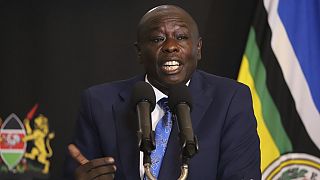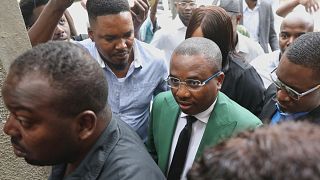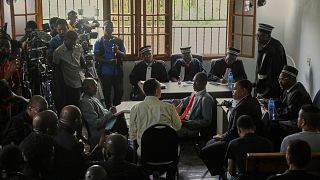Haiti
Kenya's President William Ruto arrived in Haiti on Saturday, claiming that because of a Kenyan police force battling gangs “the country's security has significantly improved.”
Ruto's claim was contradicted by a United Nations security expert, who just days earlier warned that violence in the country was worsening as gangs expand their control over the Caribbean nation.
Ruto stepped off the plane, walking passed armed officers on a small patch of red carpet flanked by other officials.
He headed to a Kenyan base at the airport where he met with police tasked with battling the gangs and a number of high-ranking Haitian and Canadian officials.
He claimed that Kenyan forces have boosted security infrastructure and allowed displaced Haitians to return home after fleeing violence, though many Haitians say violence is just as bad, if not worse, than it was when the police were deployed in June.
Ruto said he hoped to listen to members of the Kenyan forces deployed and hear about their progress before he heads to New York to meet with U.N. leaders. They are grappling with how to best support resource-strapped Kenyan and Jamaican forces who have struggled to contain the gangs terrorizing the Caribbean nation.
Kenya was the first nation to send forces as part of a larger effort by the U.N. to offer international support to Haiti, which has spiraled into conflict and political turmoil since the 2021 assassination of President Jovenel Moïse.
About 400 Kenyan police are in Haiti. Earlier this month, about two dozen police and soldiers from Jamaica arrived in the country. But the United States and other countries have said that the forces aren't enough and lack resources to take on gangs, which control about 80% of the capital, Port-au-Prince.











Go to video
Ruto's $9M mega church sparks outrage amid Kenya's crisis
00:26
Passengers no longer have to remove shoes at US airport screening
01:40
Kenya's president defiant, backs security forces after deadly protests
01:05
"Shoot in the leg": Ruto orders Kenyan police to curb protest vandalism
01:49
Broken windows and lootings: Nairobi businesses deal with protest aftermath
00:37
UN Human Rights Office says 'deeply troubled' by Kenya protester deaths